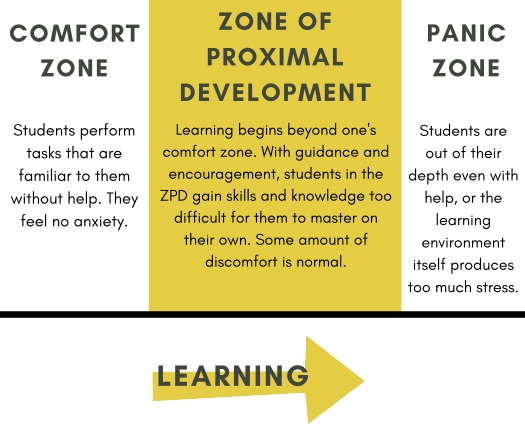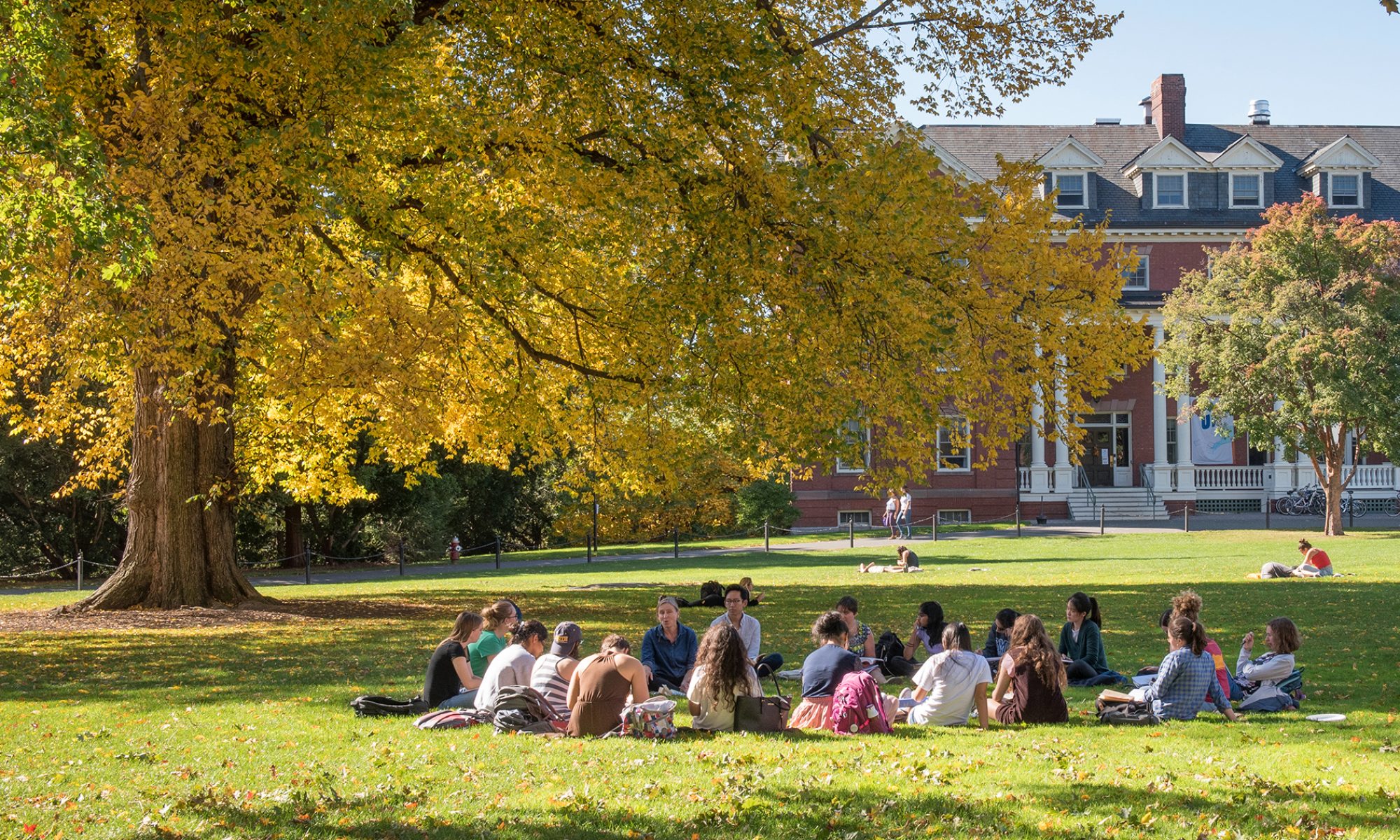OUR WORK TOGETHER and YOUR INDIVIDUAL RESPONSIBILITIES
Participation and Attendance
We have done our best to plan a thoughtful sequence of readings and lectures. After having read the assigned materials, come to class prepared to ask questions and make connections. Although this is a big class, we hope to create conditions for active learning and fruitful discussion. Know that studies have shown that the “best learning takes place when learners articulate their own unformed and still developing understanding and continue to articulate it through the process of learning” (R. Keith Sawyer 12). We will also practice nonviolent communication.
If you need to be absent for one class, don’t worry and don’t feel like you need to inform us. We trust you.
We anticipate that this class will be intellectually and emotionally challenging for all of us. Learning begins after we’ve left our comfort zone. Let us stay within what Lev Vygotsky calls the “zone of proximal development.” Depending on our individual levels of power, privilege, and previous knowledge, we will occupy different positions on the following continuum of learning. If you ever feel like you are drifting too close toward the panic zone, care for yourself by taking a break, talking with friends, and/or consulting with an instructor.

Electronic Device Policy
All readings will be posted on Moodle, so feel free to bring your devices to class. We will also use PollEverywhere sometimes to gather anonymous feedback. If you need to borrow a device for the semester, contact the coordinating instructor in private.
Exit Tickets
In the last five minutes of every class, we will ask you to complete a digital exit ticket. Here you will have the chance to reflect on what you just learned and tell us your biggest takeaway. The coordinating instructor will read all of them.
Moodle Posts
Three times during the semester, please respond to readings or lectures with ~500 words. These responses can take the form of questions, notes to yourself, or reflections connecting the material to your previous knowledge–personal, academic, or cultural.
